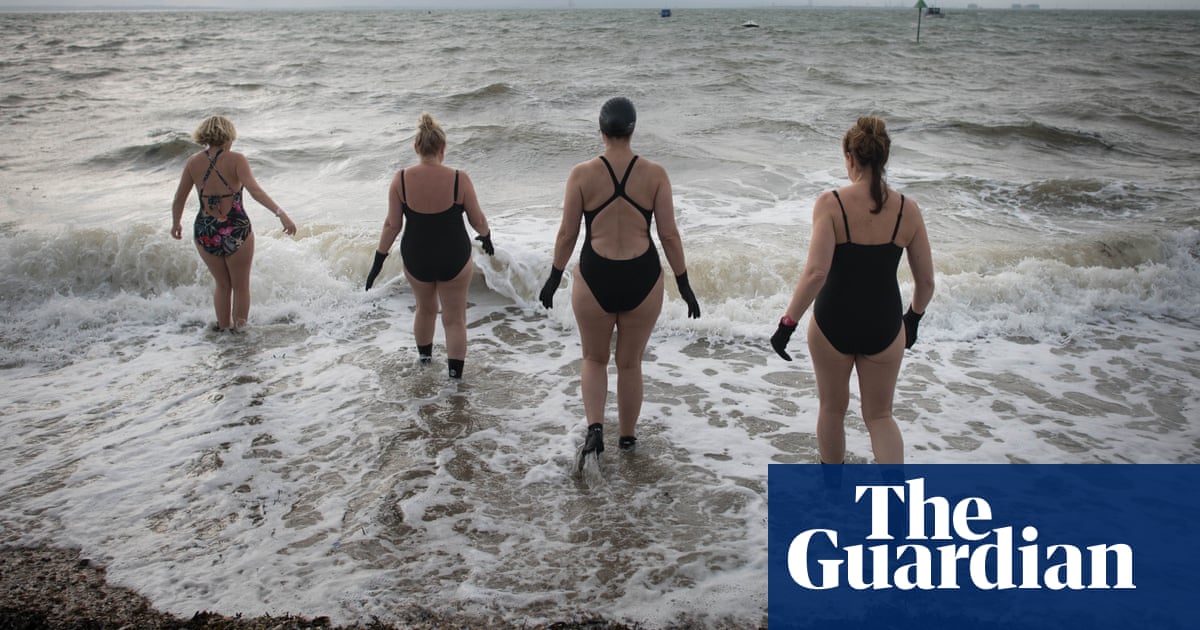
Perhaps it was an image that finally tipped the scales. After years of downplaying calls to stop the scandal of raw sewage being dumped in the UK’s waterways, the government was forced into an embarrassing U-turn this week as drone footage showing effluent pouring into the sea attracted wall-to-wall media coverage.
What some campaigners have been shouting about for years from the sidelines, suddenly became the subject of mainstream concern. Conservative MPs from coastal constituencies found themselves bombarded with letters and emails calling for an end to sewage releases into rivers and seas. On social media, images of poo-stained people emerging from British seas were trending. And all this on the eve of the UK government hosting Cop26.
After a week in which the problem of water companies routinely releasing millions of hours of raw sewage into waterways each year was the subject of tense debate in parliament, many campaigners for clean waterways believe the tide may be turning.
Martin Salter of the Angling Trust said what had happened in the last 10 days was “potentially a seminal moment for our rivers and waterways”. After ping pong debates between the House of Commons and the Lords, the government finally bowed to pressure and agreed that water companies must be forced by law to cut raw sewage discharges.
Salter, a veteran campaigner for clean rivers, believes the shift has come largely through public pressure. “During lockdown people rediscovered the British countryside in their droves. Two years ago hardly anyone was wild swimming, now in November I have groups swimming past me on the River Thames regularly.
“And people are getting sick and people are getting more outraged than they might otherwise have done because this is directly affecting them.”
It was anglers who first approached the Tory MP who has done more to turn the government round in Westminster than anyone else. Philip Dunne, the chair of the environmental audit committee, first suggested changing the law to force water companies to stop discharging raw sewage in a private member’s bill last year.
As chair of the EAC and an MP for the rural constituency of Ludlow, he was acutely aware of the problem. When his private member’s bill attracted cross-party support from 135 MPs, the government sat up and took notice. He was courted by Rebecca Pow, environment minister, who persuaded him that with his private member’s bill out of time, she would take the spirit of his bill and include it in the key post-Brexit legislation which would define the way the UK oversees the natural world, the environment bill.
But when the bill emerged, it contained some welcome legislation including duties on water companies to reveal data on storm overflows and monitor water quality upstream and downstream from sewage plants, but there was no legal duty on water companies to reduce raw sewage discharges.
For Dunne and other colleagues this was simply not good enough; a rebellion was building.
Outside Westminster, grassroots campaigners have been organising across the country in the weeks leading up to the environment bill returning to parliament.
Surfers against Sewage, key fighters in the battle to clean up British coasts many decades ago, had joined forces with the likes of the Rivers Trust, London Waterkeeper and British Canoeing, as the campaign group End Sewage Pollution. On the ground protests were held on beaches from Whitstable and Margate to Falmouth in Cornwall.
Lady Jones of Moulsecoomb said peers were bombarded with thousands of letters and emails calling for an end to raw sewage discharges. It was that pressure that led the Duke of Wellington to write an amendment for the environment bill which encompassed Dunne’s now defunct private member’s bill, which was passed by peers and moved to the Commons on Wednesday last week.
But in the days before the vote on the amendment, George Eustice, the environment secretary, stepped in to tell his MPs to vote against it.
On 20 October, the scene was set for a showdown. Dunne and 21 other Conservative MPs rebelled and voted for the sewage amendment, and against the whips instructions. But despite their rebellion, the amendment was not passed.
But if Eustice and his ministerial colleagues thought that was the end of it, they were soon proved wrong. The defeat of the sewage amendment prompted an outcry from unlikely but powerful allies; both left- and rightwing media, environmental activists, NGOs, the former Undertones frontman, Feargal Sharkey – whose voice was heard across the airwaves – and in even the bible of the landowning classes, Country Life.
In the run-up to the vote, a government spin doctor had trotted out what the privatised water industry has blamed as the reason for inaction for many years: the age of our Victorian water and sewerage system. “The complete elimination of discharges from storm overflows would be extremely challenging,” a spokesperson said. “Initial assessments suggest total elimination would cost more than £150bn.”
But no amount of spinning could quell the anger. Conservative MPs who had voted down the amendment were deluged with letters from voters, named and shamed on social media, and the word sewage started trending on Twitter; to the delight of Sharkey, who urged his followers to “make it number one”.
A spooked No 10 hurriedly sent an identikit memo to all Tory MPs to defend their actions, claiming the bill had to be rejected for financial reasons. But the uniform defence attracted ridicule rather than respect from constituents.
Eventually the government gave in and U-turned. Ministers said they would be writing their own amendment next week to place a legal duty on water companies to cut sewage discharges.
Meanwhile the focus has shifted to the finances of the privatised water firms. New analysis on Friday revealed that in the last 11 years, as the problems of raw sewage dumping increased, the nine English water companies have paid shareholders a total of £16.9bn in dividends; an annual average of £1.4bn.
Author of the analysis, David Hall, of the Public Services International Research Unit (PSIRU) at the University of Greenwich, said: “This significantly reduces the money available for investment. Dividends extracted by the companies’ shareholders since privatisation are equivalent to almost half (46%) of total capital expenditure: £57bn compared with £132bn (1991-2018). Figures from 2020 show this impact continues.”
According to a leak of a report from the Storm Overflow Taskforce, made up of the water industry, Ofwat and the Environment Agency, the cost of dealing with the worst and most damaging raw sewage discharges ranges from £3.9bn to £62.7bn; an interesting comparison, critics say, with the dividends paid out over the 32 years since privatisation.
After this week’s victory, campaigners say the battle is not over.
Julie Wassmer, of the newly formed Whitstable Save our Seas campaign, said local people in campaigns across the country were linking up in a coordinated action to make sure water companies were forced to stop using rivers and seas as sewage dumps.
“We don’t expect this to be fixed in five minutes, but we don’t want the issue to be kicked into the long grass to save face for the government during Cop26,” said Wassmer. “And we will continue to protest, the environment bill is just one part of a huge campaign and it’s a joined up campaign.”
On the south coast, Mike Owens, of Hayling Sewage Watch, has campaigned to clean up the seas for many years. “Until now it has been hard to get people engaged,” he said. “Because often they cannot see what is happening.”
It was the desire to show the country what water companies are up to, that led Owens and his friend Chris Pearsall to produce the defining image of the sewage scandal.
Pearsall sent a drone above Langstone harbour – which is supposed to be one of the most protected marine environments in the country – to film raw sewage pouring from a Southern Water outflow into the ocean; the bird’s eye view of the pollution was stark and shocking.
Owens released the video footage on 20 October before MPs were due to vote on the sewage amendment. “It had an immediate impact,” he said. But Owens knows his work is not over, despite the successes of the last 10 days.
“The reality is that this is not a one off. This discharge lasted for 49 hours – over two days – and that particular Southern Water outflow has discharged in 2021 so far for 42,000 minutes. And it is not the only one; there are 30 of these outflows in the harbours around Hayling Island alone.”












